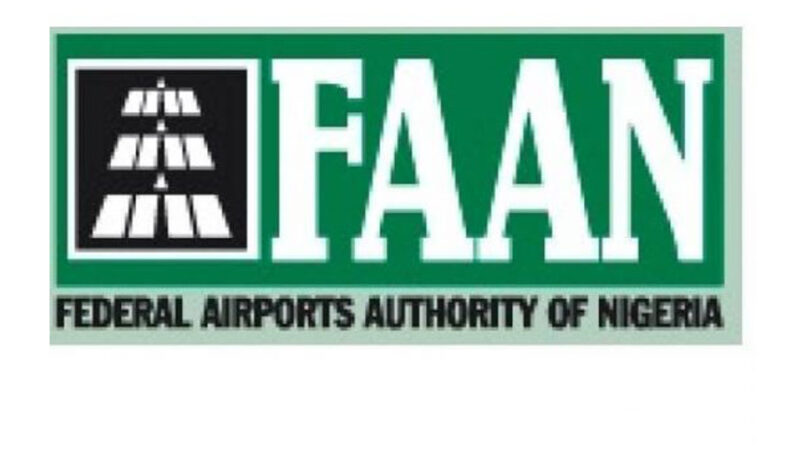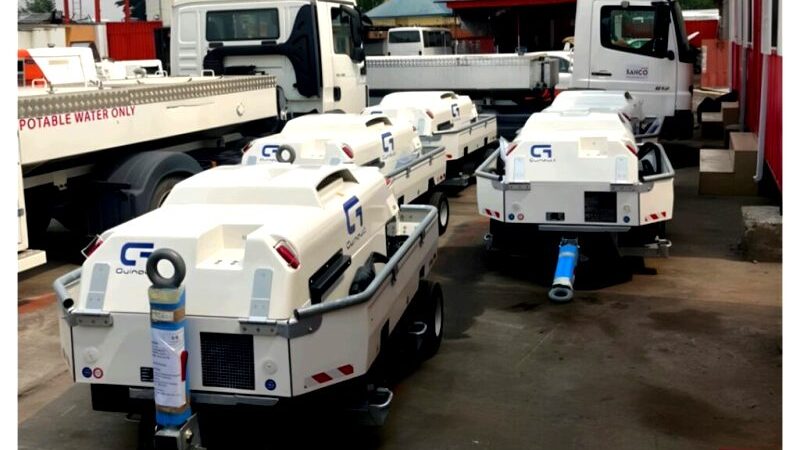Aviation Ministry Says Airport Viability Is A Necessity, Not Mere Priority

The Federal Ministry of Aviation & Aerospace Development says the viability of airports in Nigeria is not just a priority but a necessity.
Presenting his keynote address at the 9th Airport Business Summit and Expo that started in Lagos on August 20 under the Theme: “Airport Viability is Key to Successful Aviation Business Ambition,” the Permanent Secretary at the ministry, Dr. Emmanuel C. Meribole said “the success of airlines and other aviation businesses is inextricably linked to the strength and viability of the airports they rely on. Without thriving airports, there can be no thriving aviation industry. Airport viability, therefore, is not just a priority – it is a necessity for any ambitious aviation business.”
He said the theme of the conference “is very apt as it not only focuses on our shared vision for advancing the future of Aviation but is important for the survival of the aviation sector in Nigeria. Airports are the heart beat of the aviation ecosystem. They serve as hubs of economic activity, connecting cities, regions, and countries, while facilitating the movement of goods and people around the world.”
“Airport viability can be defined as the ability of airports to operate sustainably, profitably, and efficiently while delivering high-quality services to passengers and stakeholders. On the 10th of July, 2024, The Managing Director of Federal Airport Authority of Nigeria (FAAN) was quoted by Channels Television as saying that only three airports out of the twenty two airports in Nigeria managed by FAAN are profitable. However, looking at all the indices of Viability, it is probably Lagos Airport that is viable. To achieve viability, a number of critical factors must be addressed” Meribole said, identifying the factors as Sustainable Financial Models that involves airports being financially self-sufficient, with diverse revenue streams that can weather fluctuations in passenger traffic and external shocks; Operational Efficiency and Innovation that leverages technology and innovation in areas such as passenger processing, air traffic control, and ground handling can significantly enhanced efficiency and service delivery; Infrastructure Development to support current and future demand, including not only runways and terminals but also, integrated transportation systems that connect airports to surrounding areas and enhancing capacity, reducing bottlenecks, and improving the overall passenger experience; Environmental Sustainability by proactively investing in sustainable practices such as carbon-neutral operations, renewable energy sources, and waste reduction to also strengthen their competitive positioning in a world that increasingly values sustainability; Public-Private Partnerships (PPPs) which offer a viable solution to financing infrastructure projects and modernizing airport facilities allowing governments to focus on regulation and oversight; Passenger Experience and Customer Satisfaction to meet the evolving needs of passengers and attract more traffic, building stronger brand loyalty and Creating a Collaborative Aviation Ecosystem where governments, airport authorities, airlines, regulators, and private sector investors work together to align strategies and priorities while government plays the role of creating an enabling environment that encourages innovation, competition, and investment in the sector. “This includes adopting policies that incentivize infrastructure development, streamlining regulatory processes, and ensuring airports have access to the financing and resources they need to thrive,” he said.
He further stated that “airports that invest in digitization and automation will be better positioned to handle future challenges and capitalize on new opportunities” and that “beyond their role in supporting aviation businesses, airports are vital drivers of national and regional economic development. Airports generate jobs, attract foreign investment, and contribute to tourism, trade, and business activities. For countries and regions looking to accelerate their economic growth, airports are key assets that must be nurtured and developed. By focusing on airport viability, we can unlock broader economic benefits, boost international competitiveness, and enhance connectivity in ways that go beyond the aviation industry. In this sense, airport viability is not just an aviation issue; it is a national economic imperative.
I am happy to inform that the five focus areas of the Honourable Minister of Aviation and Aerospace Development keyed into the Renewed Hope Agenda of President Bola Ahmed Tinubu Administration is geared towards making our airports viable. In line with these focus areas, we are working towards ensuring sustainable financial models for our airports, embracing public private partnerships; infrastructural development, Aviation human capital development as well as embracing eco-friendly practices and policies, reducing carbon footprint, and integrating renewable energy sources. In addition the present administration is fostering partnerships, collaborations among industry stakeholders, government authorities, and local communities.”
He concluded by saying that “airport viability is indispensable in the pursuit of a successful aviation business ambition. By recognizing its significance and collectively committing to its enhancement, we can steer the sector towards greater prosperity, resilience, and excellence. I want to charge all delegates and experts here present to work towards coming up with actionable plans that will usher Nigeria into the next phase of its Aviation growth. Without strong, efficient, and sustainable airports, the aviation industry will struggle to reach its full potential. But with strategic investments, innovative approaches, and collaborative efforts, we can ensure that airports continue to be dynamic engines of growth and opportunity for the entire aviation ecosystem.”
SEE MORE PHOTOS






